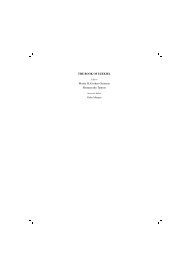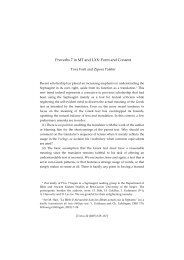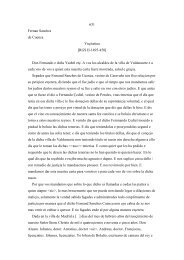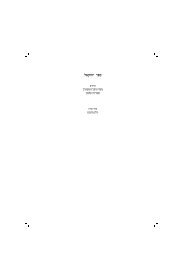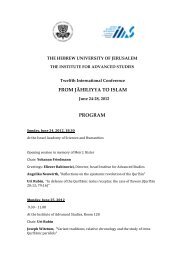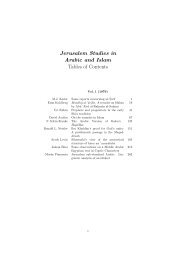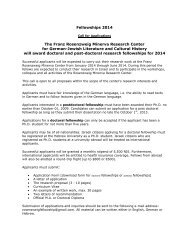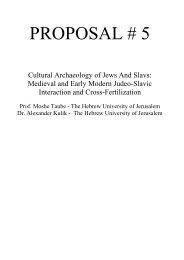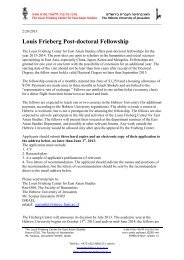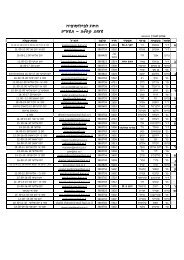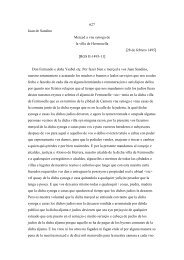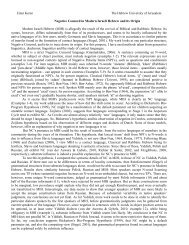Baber Johansen
Baber Johansen
Baber Johansen
Create successful ePaper yourself
Turn your PDF publications into a flip-book with our unique Google optimized e-Paper software.
14<br />
Al-BÁjÐ (1012-1081), a MÁlikÐ scholar born and educated in al-Andalus,<br />
travelled and studied for many years in Iraq and the Hejaz, and then<br />
returned to al-Andalus in 1047. After his return he was widely<br />
recognized as the leading MÁlikÐ scholar in the methodology of law (uÒÙl<br />
al-fiqh). 52 In his work on the methodology of law he uses the term qurba<br />
as a category that classifies acts of the Prophet as obligatory commands<br />
that the believers have to obey. He divides the Prophet’s acts in three<br />
classes: (1). The Prophet acting in order to explain polysemous terms and<br />
texts of the QurÞÁn; (2) The Prophet’s acts in his everyday behaviour,<br />
such as eating, drinking, sleeping, etc.; (3) The Prophet’s acts that teach<br />
the believers how to come nearer to God through their own acts, and that<br />
have to be regarded as obligatory commands. The acts of classes 2 and 3<br />
are, according to al-BÁjÐ, distinguished from those of class 1, because the<br />
Prophet acts in them on his own initiative (ibtidÁÞan). BÁjÐ holds that<br />
class 2 should not be considered as obligatory commands given to the<br />
believers, but as permissible acts. He distinguishes them from the acts of<br />
class 3 of which he says that they<br />
cover nearness to God and [acts of] worship (mÁ fÐhi qurba wa-<br />
ÝibÁda). The opinion held by most of our scholars is that these acts<br />
are [to be interpreted] as [conveying the sense of] obligation (falladhÐ<br />
Ýalaihi aktharu aÒÎÁbinÁ annahu Ýala l-wujÙb). 53<br />
He follows this sentence with a long list of jurists who shared his opinion<br />
and others who see in these acts recommendations or suspend their<br />
judgment on their classification unless they can be interpreted through<br />
recourse to clear indicants. He then states his own position:<br />
I hold that [they are to be interpreted] as [conveying the sense of]<br />
obligation unless an indicant points to something else. The<br />
establishment of the obligatory character of these acts is due<br />
under the aspect of [knowledge] transmitted by scripture (min<br />
jihat al-samÝ). This is indicated by God’s word: ‘Follow him, so<br />
that you may be rightly guided’ (Sura 7, verse 158). And to<br />
follow him [means to follow him] in his sayings and his acts. 54



